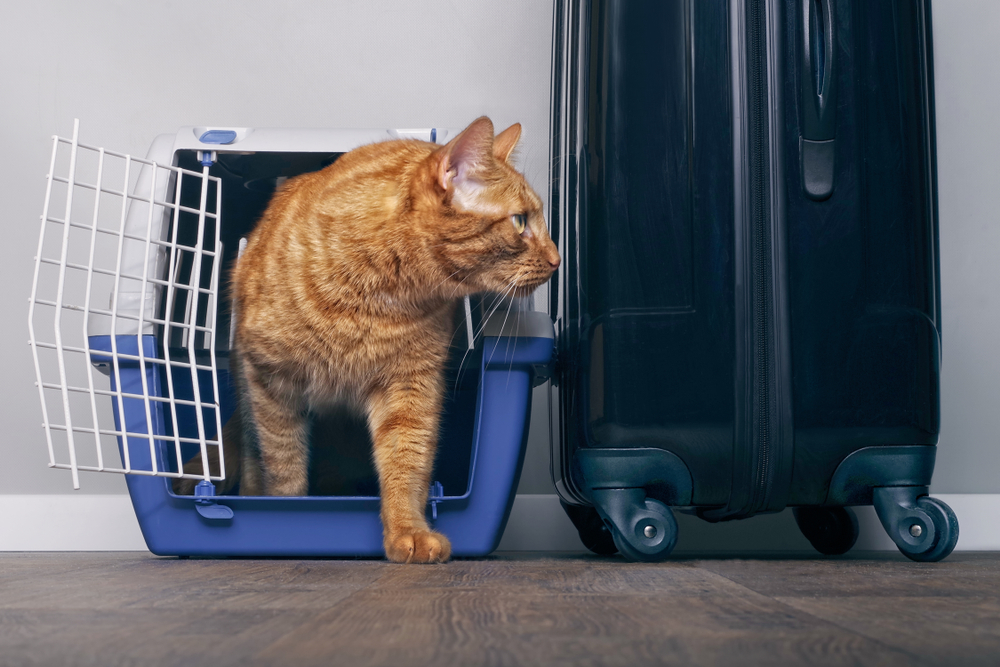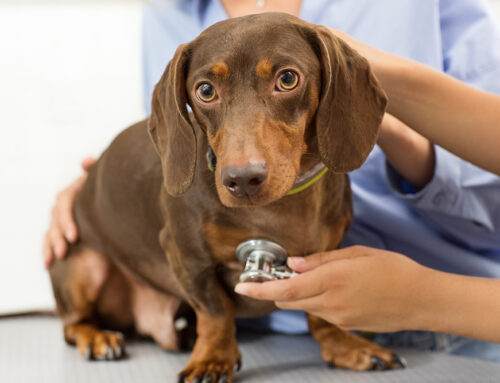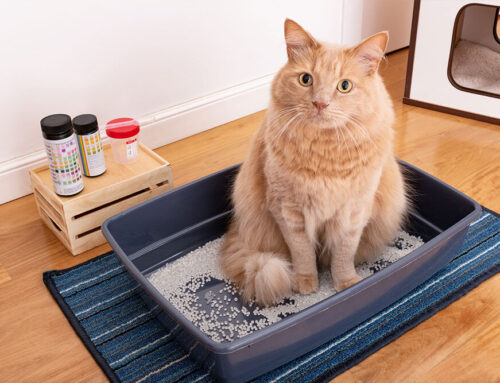No pet owner wants to think of their beloved cat or dog getting lost, but you should not ignore this reality. No matter how well-trained your pet, you never know when they may get loose. Whether your pet is frightened by a sound, enticed by a scent, or simply curious about something on the other side of the fence, you must take precautions to increase the likelihood that you will be reunited if your four-legged pal becomes lost. Our Animal Clinic of Council Bluffs team explains the importance of microchipping your pet.
What is a microchip for pets?
A microchip is a tiny transceiver that contains your contact information and a unique identification number, which is registered in a nationwide database. Your veterinarian implants your pet’s microchip just under their skin, usually right between the shoulder blades. The procedure is quick and safe, and provides your pet with lifelong permanent identification.
When a veterinarian or animal shelter radio frequency identification (RFID) device scans your pet, the chip sends its ID number to the reader, locates the number in the database, and contacts you. To ensure you can be reached if you are separated from your microchipped pet, always keep your contact information current in the nationwide database.
How is a microchip implanted in my pet?
The microchipping procedure is no more painful than a routine injection. Our Animal Clinic of Council Bluffs team can easily implant your pet’s microchip when we administer your furry pal’s regular vaccines or perform their annual wellness exam. Using a hypodermic needle, your veterinarian injects the chip—the size of a rice grain—under your pet’s skin. Implantation requires no surgery or anesthesia. If your pet is under general anesthesia for a routine procedure, such as spaying, neutering, or a dental cleaning, your veterinarian can implant the microchip before they wake up.
Why should I microchip my pet?
As a responsible pet owner, you likely can’t imagine a situation in which you and your pet could become separated. However, you never know what could frighten your pet, causing them to bolt, or entice them to sneak away. If you and your pet become separated, having them microchipped provides the following benefits:
- A more likely reunion — A study of more than 7,700 animals at shelters in 23 states, has reported that microchipped pets are far more likely to be returned to their owner.
- Collars and ID tags can fall off — A pet who is microchipped should still wear a collar and ID tags. However, a microchip ensures your pet carries your contact information at all times, providing backup if your pet loses their collar or the tags fall off.
- Microchips provide peace of mind — Pets go missing for many reasons, and regardless of the cause, the experience is highly stressful. Knowing your pet is microchipped provides some peace of mind amidst the ordeal of being unable to locate your pet. A few common reasons pets go missing include:
- Your pet gets lost — If your pet makes a break for it, you can rest easier knowing that they have permanent identification they cannot lose.
- Your pet gets stolen — If your pet is stolen, a microchip proves that the pet in question belongs to you.
- You have an emergency — In an emergency situation, such as a traffic accident or natural disaster, a microchip can help identify you and contact your family.
Is my privacy at risk if I have my pet microchipped?
Your privacy is not at risk if you have your pet microchipped. The information you provide to the manufacturer’s microchip registry is used only to contact you if your pet is found. No one can access this information other than the manufacturer, who has protections in place to secure your contact details.
Can a microchip help if my pet gets lost while traveling internationally?

The International Standards Organization (ISO) has approved and recommended a global standard for microchips, which is intended to create a consistent worldwide identification system. If your pet goes missing in another country, their ISO standard chip should still be readable. Ask your veterinarian to implant your pet’s ISO-compliant microchip if you will be traveling internationally.
While we hope you never become separated from your pet, microchipping is the best way to ensure a happy ending. To have your pet’s microchip implanted, or to ensure your contact information is up-to-date, schedule an appointment with our Animal Clinic of Council Bluffs team.






Leave A Comment